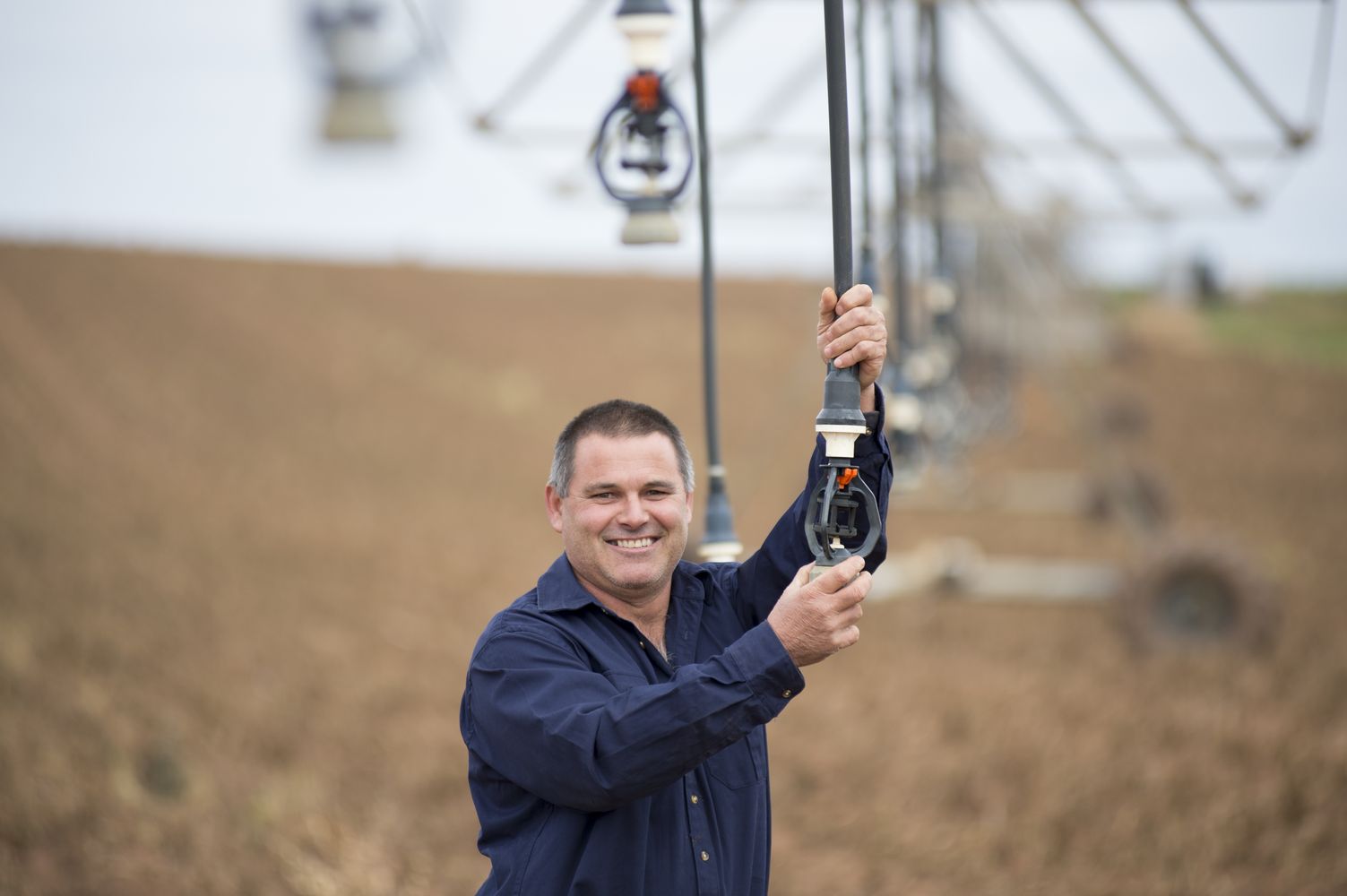James Zadow: Continuing over a century of family farming
A love of the quiet life has kept potato grower James Zadow on his family’s South Australian property for over 30 years. Three years ago, James discovered Integrated Pest Management (IPM) practices which have proved beneficial to his potato growing operation. James spoke to AUSVEG about IPM, and other measures he has taken to promote on-farm sustainability.
Fast facts
Name: James Zadow
Location: Caloote, SA
Works: Kaluna
Grows: Potatoes, grain
Most days you will find James Zadow working on his 100-acre potato growing operation and enjoying the solitude of living in regional South Australia.
A fourth-generation grower, James runs Kaluna which is nestled on the banks of the Murray River in Caloote, around 30 kilometres north of Murray Bridge. The farm was originally a wheat and sheep farm, until James’ parents Ian and Christine decided to start growing potatoes 30 years ago. And the rest is history.
Today, James – supported by his wife Necia – share farms around 600 acres of grain a year. He also grows about 150 acres of hay annually for a dairy farmer in addition to potatoes.
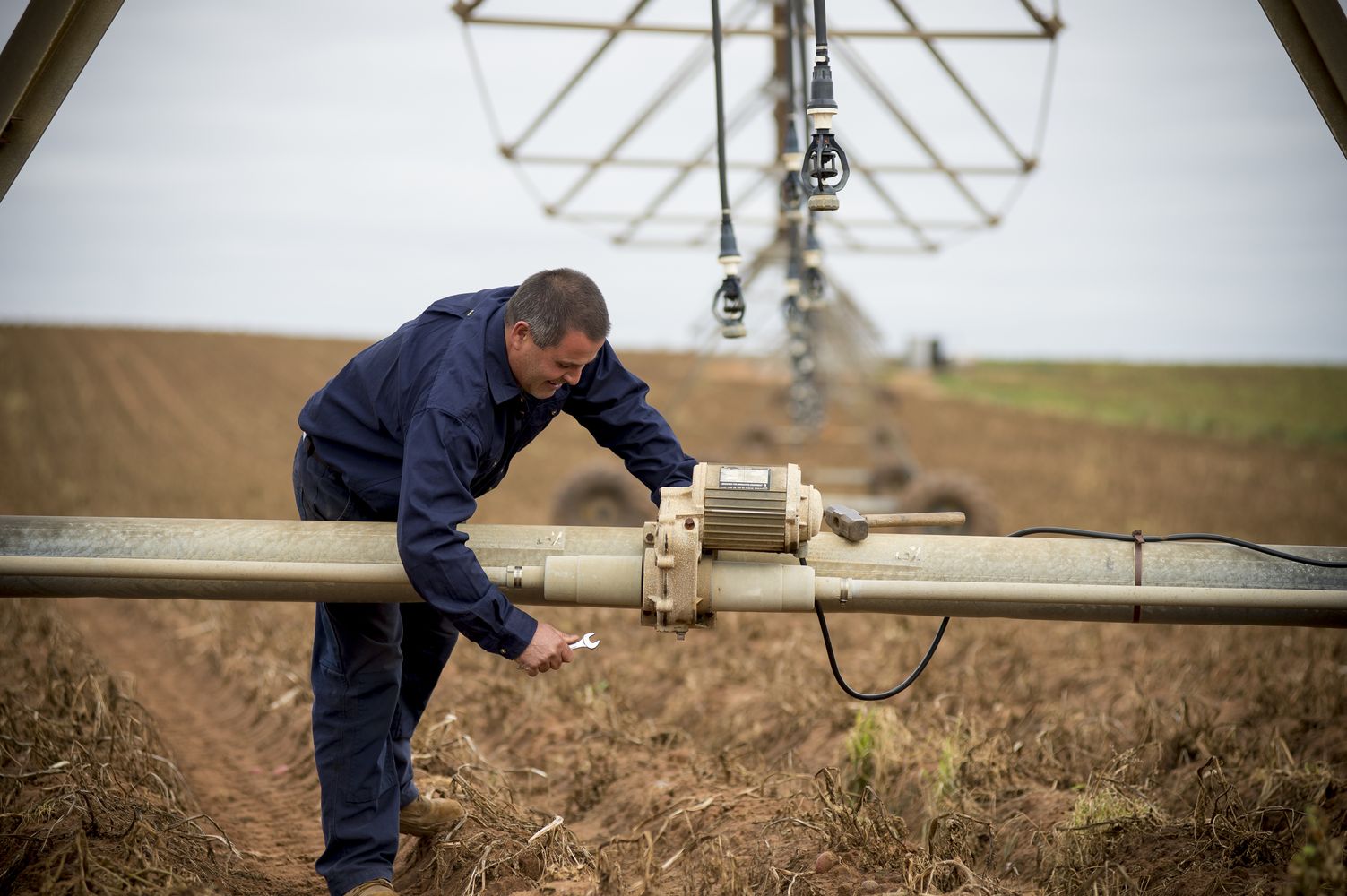
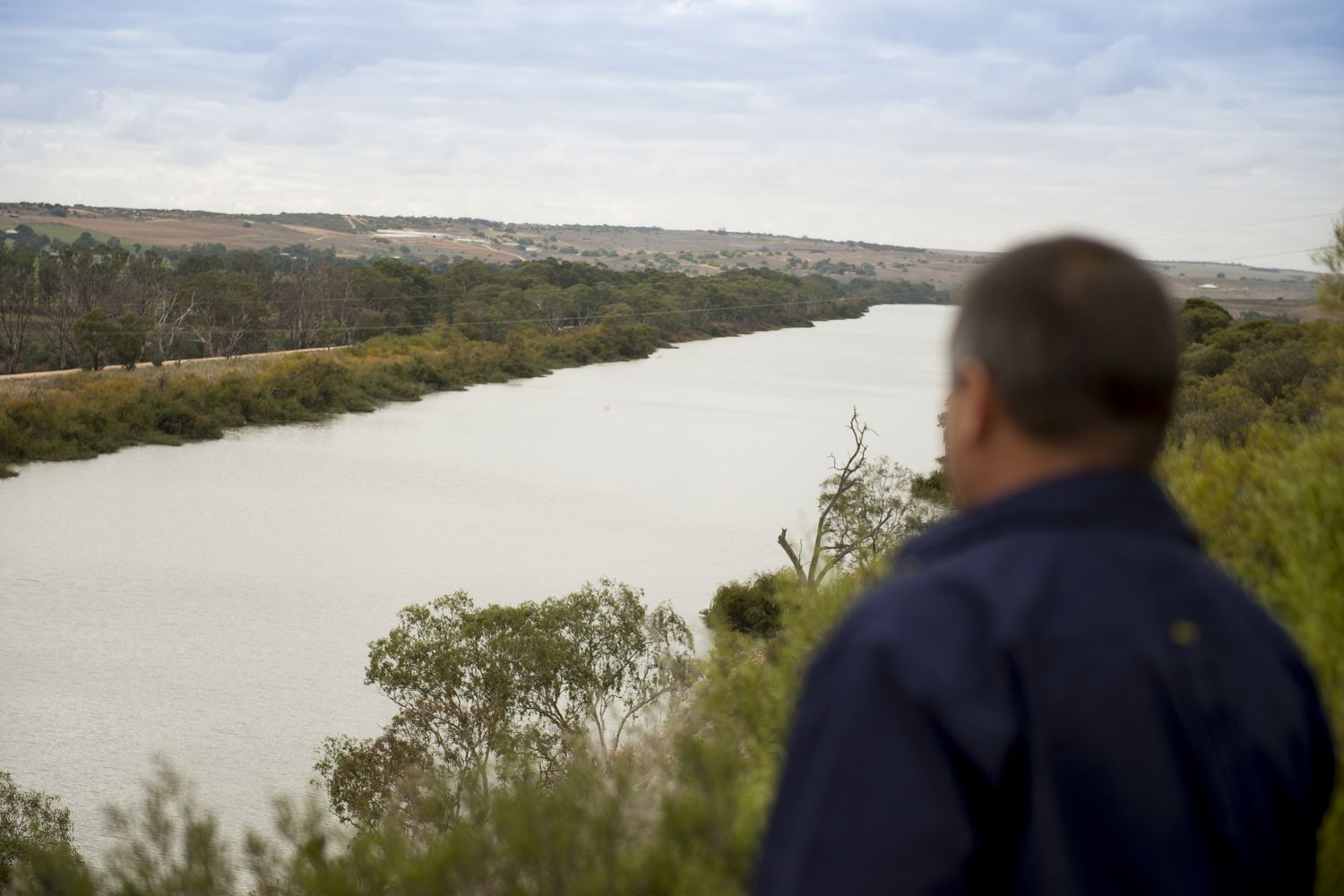
An integrated approach
Three years ago, James attended a workshop facilitated by Dr Paul Horne and Angelica Cameron from IPM Technologies. Integrated Pest Management (IPM) is an effective combination of chemical, cultural (such as farm management practices) and biological methods to keep weeds, insect pest numbers, disease pressure and other crop production problems low enough to prevent significant economic loss.
While James was always mindful to avoid spraying crop protection products often, he says that adopting an IPM approach has been beneficial for his potato growing operation. He uses common beneficial insects such as lacewings and ladybeetles to assist with this process.
“We’ve always erred of the side of caution when we spray for insects. We were almost doing an IPM plan before we went to the workshop, because it was very rare that we sprayed for insects. We usually spray when we spray off to kill any potato moth that’s around,” he says.
“It’s like any chemical. When you overuse it, it loses its effect. The less that you have to spray, the most effective it is when you do spray.
“Certainly for the last three years, we’ve been sticking to IPM and it seems to be working. We’re certainly not losing any quality in our finished product because we’re not spraying for insects earlier.”
This approach has also saved James both time and money.
“It’s not a huge cost with the amount of spuds that we grow, but any time you save and any money you save is always a bonus.”
"We’re not looking to be millionaires. We’re just looking to be comfortable doing what we’re doing – and so far it’s working."
Building sustainability
While IPM has been an on-farm focus for James, he also maintains the ongoing sustainability of the farm by having regular soil tests and sap tests (testing for nutrients on the plant). A leaf analysis is conducted to record which nutrients his crop may be lacking and which are in abundance.
Other on-farm practices include rotating crops.
“We plant two crops under the one centre pivot (one after the other), and then we don’t go back to that ground for six years, giving two crops a six-year break. It’s worked for 30 years so hopefully that continues,” James says.
Checking potato seed for diseases is another priority, as is making sure machinery and equipment is clean when moving between farms.
“You can only be as careful as you can. The weather can be a big factor – if it just keeps raining or it gets too wet, you can end up with disease in the potatoes through no fault of your own,” he says. Fortunately, with only 10-11 inches a rain received in the region per year, James usually avoids this issue.
In addition, James regularly walks through the crops with Thomas Foods International Fresh Produce and agronomists from E.E. Muir & Sons – they provide ideas for fertilising and using insects in the crops.
“Basically you listen and learn as you go along. Even though you’ve been growing potatoes for 30 years, it doesn’t mean you know everything,” James says.
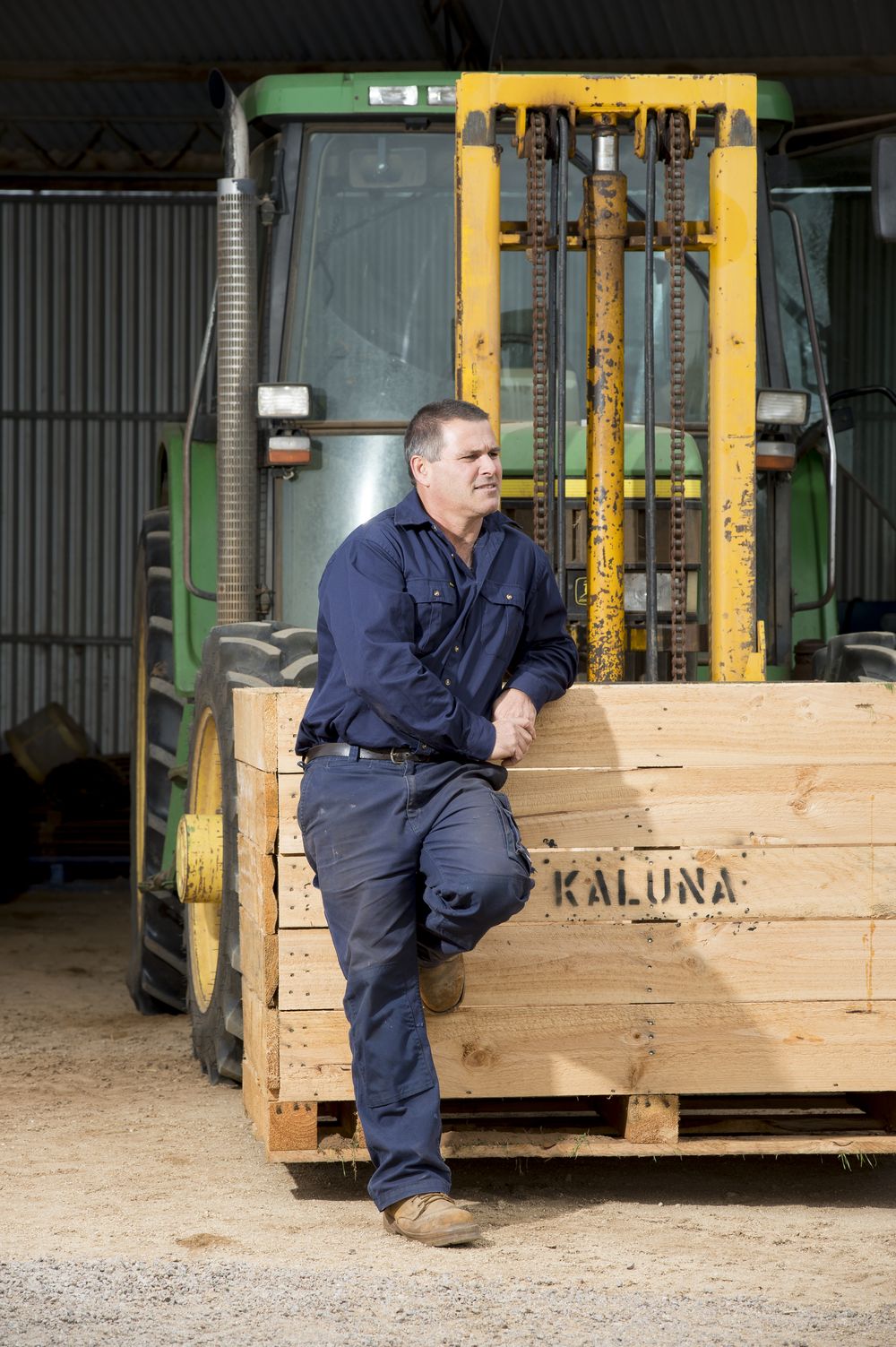
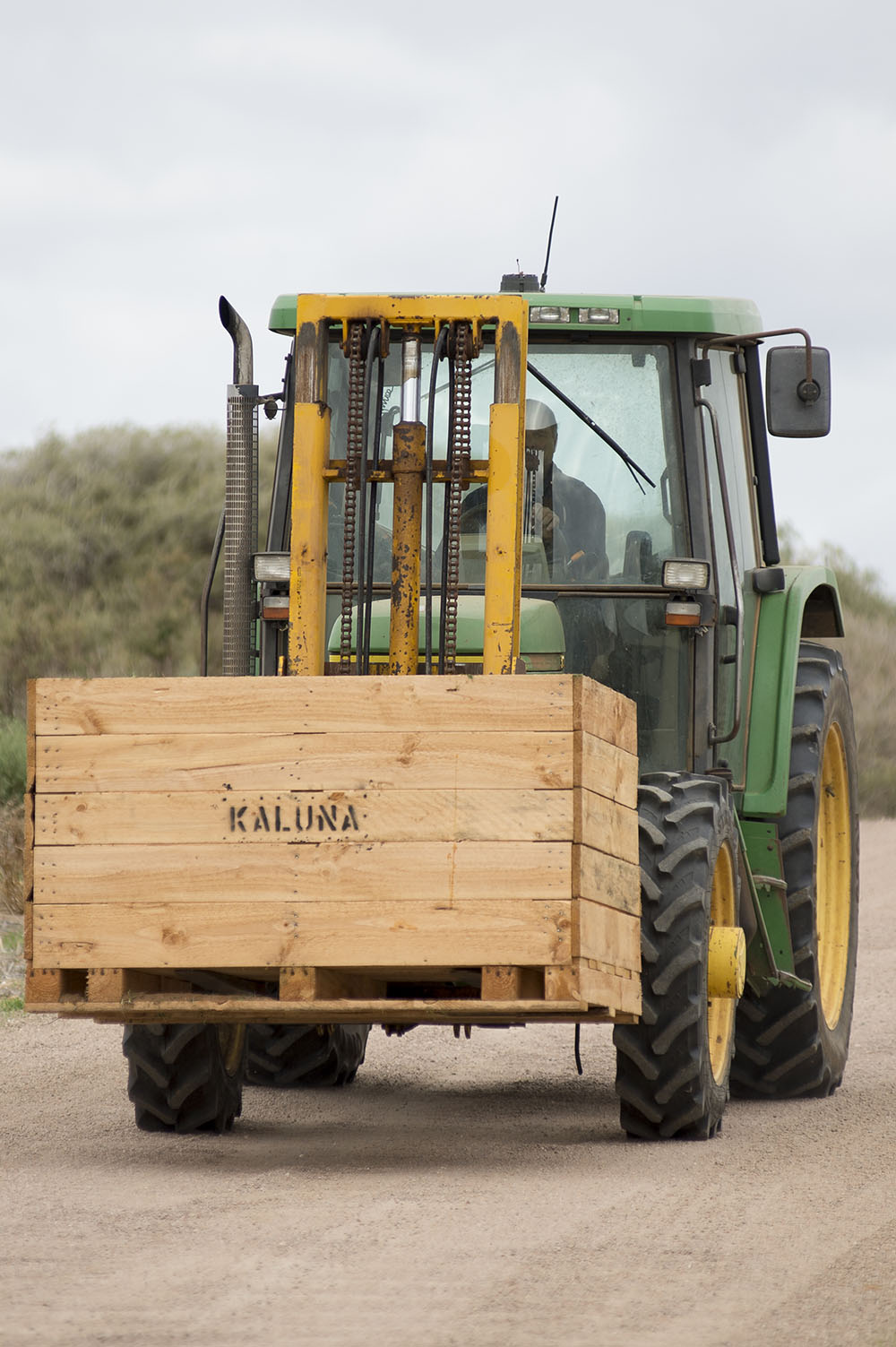
Family tradition
The 113-year-old family-owned growing operation is set to continue into the future with James’s son Jack indicating his willingness to return home to the farm following a three-month stint in Canada working in a vineyard.
James is proud of this rich family heritage, and points to Kaluna’s transition from dry land and sheep to where it is today as an achievement.
“That was a big cost to set up all those years ago. I think the fact that we’ve been able to make the farm viable for 113 years – there wouldn’t be too many people in Australia who have done that,” he says.
“I’m 50. My son at this stage reckons he’s coming home so that would be fantastic. That would be five generations; I guess being able to hang onto the farm as long as we have and make it viable is probably our biggest achievement – not just mine, but my father’s and my father’s father.”
There are no plans to grow any other crops at this stage.
“We’ve got scope that we can extend and put in a couple more centre pivots with the land that we own,” James says.
“If we can keep it small like it is, you don’t have to hire people – you keep the profits and they go back to the family.
“We’re not looking to be millionaires. We’re just looking to be comfortable doing what we’re doing – and so far it’s working.”
This grower profile first appeared in the leading magazine for the Australian potato industry, Potatoes Australia. If you’d like to subscribe to receive a new edition of Potatoes Australia in your mailbox every two months, use our online subscription form!
Photography credit: Iain Bond

